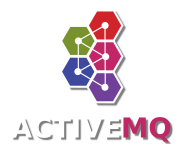Examples
Using ActiveMQ Classic > Examples
Since version 5.12.0, Apache ActiveMQ Classic comes with the new tool that can be used to produce and consume messages from the broker.
Prerequisites
Before running the examples you should try running a JMS broker on your machine. Follow the Installation instructions to use a binary distribution of ActiveMQ Classic. To run the broker in a command shell, type:
bin/activemq console
This starts up ActiveMQ Classic.
Running
From the command line you can run
${ACTIVEMQ_HOME}/bin/activemq producer
${ACTIVEMQ_HOME}/bin/activemq consumer
If you have activemq-all jar available you can achieve the same with
java -jar activemq-all-5.x.x.jar producer
java -jar activemq-all-5.x.x.jar consumer
If you run inside Karaf, you can run the commands as
activemq:producer
activemq:consumer
Options
For all options on the commands, run them with --help parameter. The up to date, options for producer and consumer can be found in the source.
Examples
Here are a couple of examples of more advanced features.
To send a text message with custom text use
bin/activemq producer --message "My message" --messageCount 1
To send byte message of custom length use
bin/activemq producer --messageSize 100 --messageCount 1
To send a text message with content obtained from an url
bin/activemq producer --payloadUrl http://activemq.apache.org/schema/core/activemq-core.xsd --messageCount 1
To consume in transaction use
bin/activemq consumer --transacted true
To use client acknowledgment use
bin/activemq consumer --ackMode CLIENT_ACKNOWLEDGE
To use durable topic subscribers use
bin/activemq consumer --durable true --clientId example --destination topic://TEST
Old examples
In older versions of ActiveMQ Classic, the corresponding examples were located in examples/ or examples/openwire/swissarmy/ directories, where you can do the similar tasks with an ant script.
ant producer
ant consumer
Other examples
In examples/ directory (depending on the version) you can find more examples of using the broker with variety of protocols (mqtt, amqp, …) and clients (Java, Ruby, JavaScript, …), so it’s the good place to start learning. Also, examples/conf/ directory contains a lot of different configuration examples that you can use as a starting point for your deployment.

